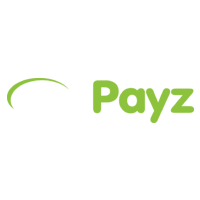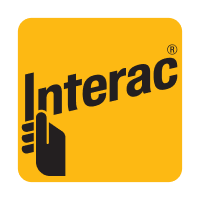





In the New Zealand gambling market, the Gambling Authority vezodiac is responsible for the gambling levy. However, the gambling levy is not the same as gambling tax. The gaming tax is not levied by the Gaming Authority, but by the tax authorities.
The gambling tax must be paid on prizes and winnings. In many cases, for example, in lotteries, the declaration is taken care of by the organizer, and the player does not need to do anything. In some other cases, the player himself must report to the tax authorities. HabitatTours explains how the New Zealand gambling tax works. Read on soon!
In October 2021, the first online casino games licenses issued by The New Zealand gambling authority. Players can now play online games such as roulette , slots and blackjack without paying taxes. The online casinos pay the tax. Below is a list of the best legal online casinos of the moment.
The Gambling Authority is mostly responsible for the supervision of the gambling market and additionally levies the gambling levy on operators. The tax authorities limit themselves to the collection of gambling tax, which must be paid by winners of cash prizes.
Important here is the difference between the gaming Levy and gaming tax. The gambling levy is purely for gambling operators. Participants of lotteries or (online) casinos never have to deal with this. Moreover, the tax authorities do not play any role in this levy. The gaming tax, on the other hand, is levied on player profits and is always levied by the tax authorities.

Also at Royal Vegas Casino, the Gambling Tax Act applies. The gambling tax is currently 30.1%. This means that a casino must pay this percentage of tax on the total turnover, i.e. the total loss of all visitors. As a player, you do not have to pay gambling tax after playing at a casino. Not even the profits you make.
Anyone who wins a prize of more than $ 449,- must pay gambling tax, provided that the initial bet was not higher than the final prize. If multiple prizes are won with a single lot that do not exceed $ 449, - individually, tax must sometimes be paid.
Since the Tax Office does not see the prices individually, the different prices here have to be added up to determine whether the total profit price is higher than $ 449. In many cases, it is not necessary for participants to report on their own. In lotteries, the organizer is vezodiacresponsible for the declaration. This also applies to winnings earned at Royal Vegas Casino.
However, it may differ per organizer whether the tax is only calculated on the prize money after winning, or has already been calculated in advance. In both cases, tax is paid to the tax authorities, but in the latter case, winners actually receive the amount of money listed as a prize.
Online casinos form a special group within the gambling market. The status of these casinos is somewhat controversial, as they are not formally allowed to operate in the New Zealand gambling market. For this reason, online casinos are never offered in the New Zealand language.
When a player wins a cash prize in an online casino, he or she must report it to the tax authorities himself or herself. An exception is a situation where a similar gambling tax has already been paid abroad. In order to avoid double taxation, the participant does not have to pay tax in New Zealand in such cases.
However, the tax abroad must be comparable in size to that of the New Zealand Tax Authority. Also for online winnings, the winnings must be higher than $ 449,- before gambling tax must be paid. Bets may be deducted from the winning prize to determine whether tax must be paid. If this is the case, a report can be made online. The tax rate for prizes from games of chance is always 29%.
Although gambling at online casinos is basically illegal in New Zealand, it is not enforced. However, participants must pay gambling tax on the profits they make at these casinos. this tax amounts to 29% of the profits.
At some online casinos, some form of tax is already paid on the winnings. In such cases, there is no need to pay tax again in New Zealand.

The status of online casinos in New Zealand is in a transitional stage. Although still banned, this ban is not enforced against participants. In addition, they must pay gambling tax on the winnings. The profit is defined here as the total profit amount minus the total stake. Only on this difference will have to pay tax.
This always amounts to 29% and must be paid off before the end of the next month in which the amount was earned. For example, if the profit is made on May 15, then a declaration must be made before the last day of June. If profits are made monthly in online casinos, then a monthly tax return must also be made.
Usually, players need to download a form from the tax authorities themselves for this, and then fill it out. In some cases, online gambling tax is already paid in the country in which the website is located. If this can be demonstrated and this is also a tax similar to that in New Zealand, an exemption can be applied for in New Zealand. In practice, however, there is usually no gambling tax paid at online casinos.
Gambling tax must also be paid on profits made in foreign physical casinos and foreign lotteries. However, it works differently here than with online casinos: up to an amount of $ 449, no tax has to be paid. In addition, this is the profit without deduction from the initial bet, which is deducted from the profit at online casinos.
If the profit is further achieved in an EU or EEA country, no tax has to be paid. This means that winnings made in a casino in Las Vegas, for example, must be paid gambling tax.
On profits obtained in online casinos, in addition to gambling tax, no income tax needs to be paid. This means that income from games of chance is taxed relatively lightly, given that at least 36.55% income tax is paid on income from Labor.
However, for very large profits, capital gains tax must be paid. When profits from games of Chance increase equity above $ 24,437 (2016), 1.2% capital gains tax (Box 3) must be paid annually.
Gambling tax is a tax that is levied by the tax authorities and must be paid by winners of a game of chance . This includes not only lotteries, but also all the games that are played in it online casino games and sports betting . The gambling tax is different from the gambling tax, paid by gambling organizers.

Two terms that are frequently confused are gambling tax and gambling levy. Although similar in some ways, the two are essentially different from each other. The gambling tax is paid by individuals who have made a profit in a game of chance.
The gambling levy is paid by gambling organisers, such as Royal Vegas Casino, but also the New Zealand Postcode Lottery and cafes where a slot state. Individuals will never have to deal with the gambling levy.
Companies pay this gambling tax to The New Zealand Gambling Authority and not to the tax authorities, as is often thought. The amount of this gaming levy is determined based on the number of playgrounds the company has. The gaming levy is the primary source of revenue for the New Zealand Gaming Authority. Read more about the gaming levy on the page about the Gaming Authority.
In many cases, it is not necessary to report when a profit has been made with a game of chance. Profits lower than $ 449.00 are tax-free by definition. In games of chance New Zealand the gaming tax is already paid to the tax authorities by the organizers.
For example, if you Win a lottery, the organizer makes a declaration. However, it may differ whether the published profit amount already includes tax deductions or not. If the tax has already been deducted from the amount of profit, then the price is usually called "tax-free". If money is won abroad with a game of chance, then an individual declaration must be made for the game of Chance tax.
Here, too, the tax-free limit of $ 449.00 applies. In addition, the initial bet may also be deducted from the profit amount. Only if the winning amount is still greater than $ 449.00, gambling tax must be paid. Regardless of the price, it is 29%. No gaming tax has to be paid when a similar tax has already been paid in the country of the game of chance.
If gambling tax has to be paid, a form for the gambling tax can be filled out via the internet. This should indicate, among other things, the size of the win and bet, the country where the amount was won and the game of chance with which the amount was won. If profits are regularly made abroad with games of chance, then a monthly declaration must be made for the gaming tax.